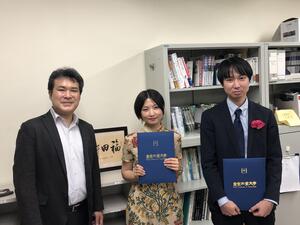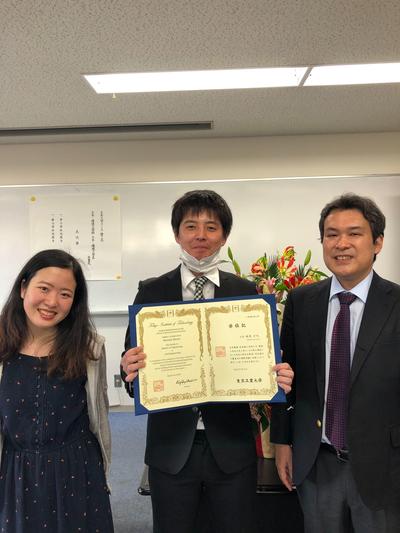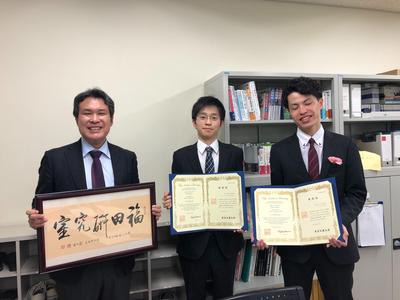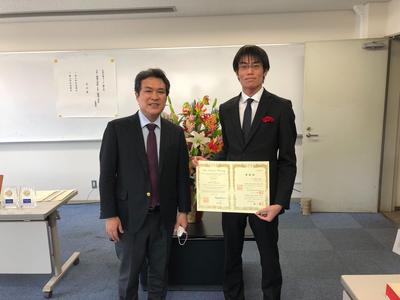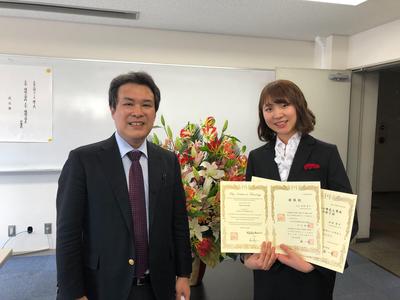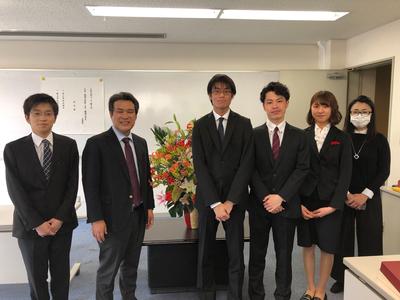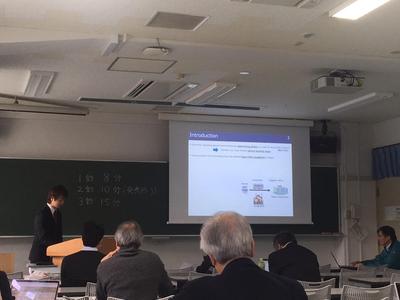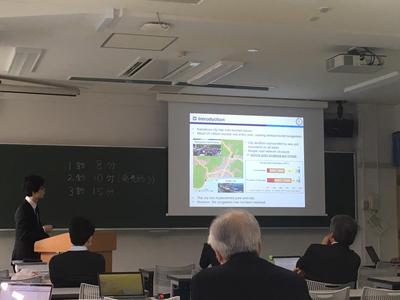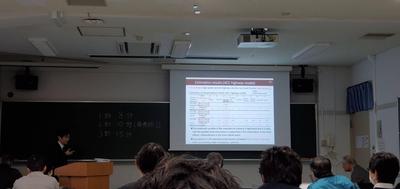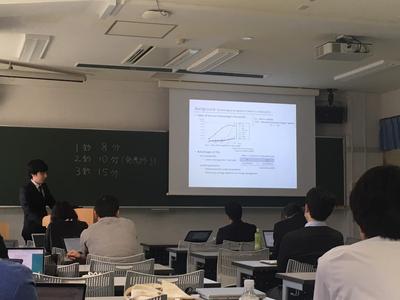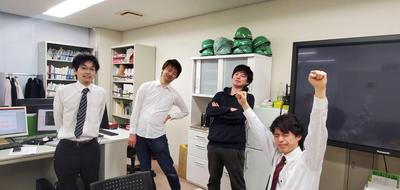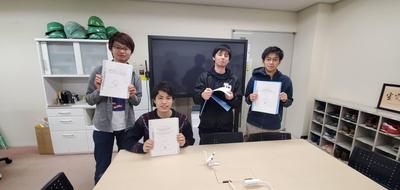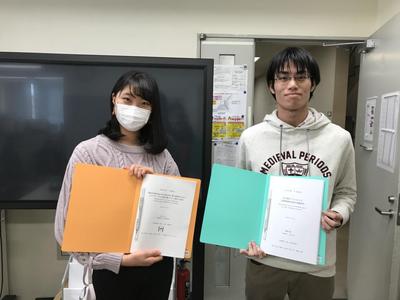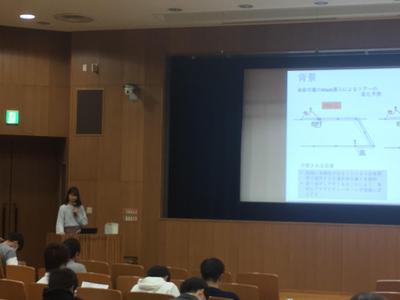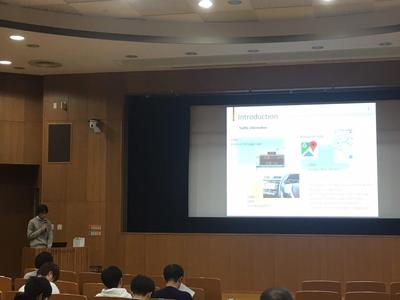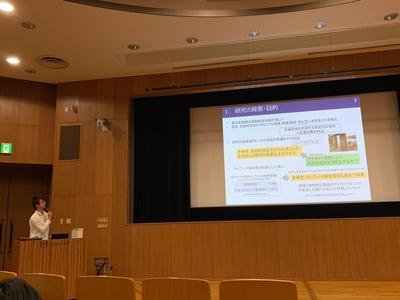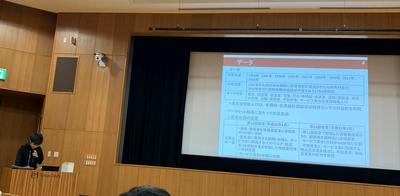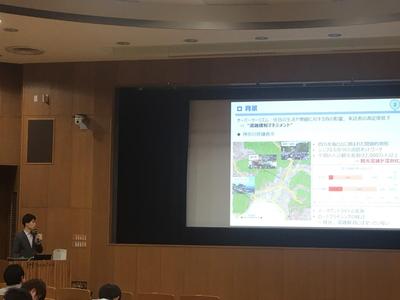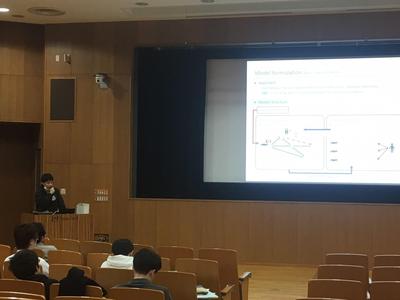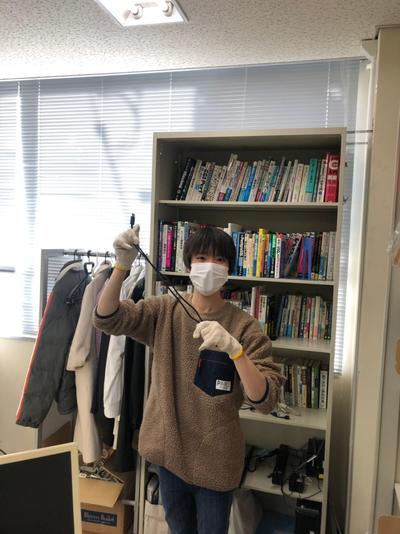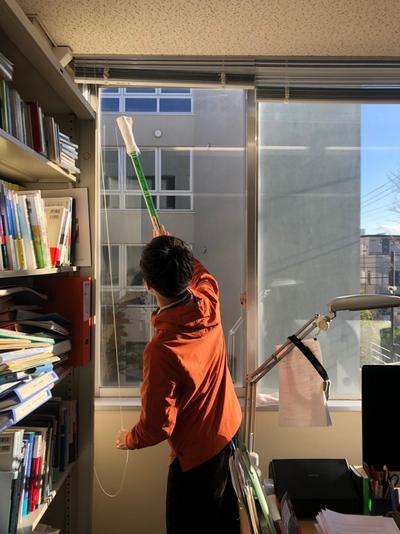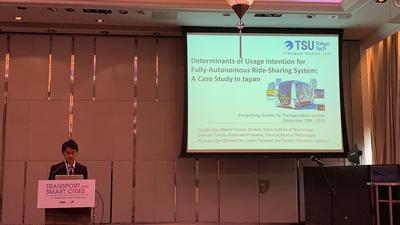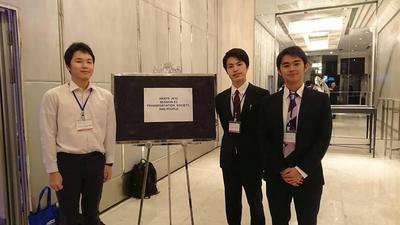Mr. Dantsuji received the 2020 Yoneya-Sasaki Award
Mr. Takao Dantsuji, a project researcher, received the 2020 Yoneya-Sasaki Award (dissertation category).
This award was established to recognize the achievements of the late Dr. Eiji Yoneya and Dr. Tsuna Sasaki, who were pioneers of traffic engineering and transportation planning in Japan.
Congratulations!
Reference article: https://www.issr-kyoto.or.jp/event/fund/award_2020.html
Mr. Dantsuji received the 2020 Yoshikawa-Yamaguchi Award
Mr. Takao Dantsuji, a project researcher, received the 2020 Yoshikawa-Yamaguchi Award.
The Yoshikawa-Yamaguchi Award was established to commemorate the 50th anniversary of the establishment of the Department of Civil Engineering at the Tokyo Institute of Technology in order to recognize the achievements of Dr. Hideo Yoshikawa and Dr. Kashiwagi Yamaguchi, who made significant contributions to both education and research in the early years of the Department of Civil Engineering at the Tokyo Institute of Technology.
Congratulations!
Reference article (in Japanese): https://www.kuramae.ne.jp/kyuyu_awards/
Mr. Oka & Ms. Wang were graduated!
Mr. Oka (Doctoral student) and Ms. Wang (Master student) completed their respective courses.
Congratulations! !
The first lab seminar and basic seminar were held
[2020/04/30]
Laboratory and basic seminars have started using Zoom.
The first lab seminar was held last week on 22nd April.
Ms. Tabuchi and Mr. Ukai, who are now M1 students, presented their graduation theses. The content of their thesis was as written in a previous article, but each of them has been further deepening their research during this spring break, as they are about to submit their theses.
And on 28th April, the first basic seminar was held.
Since it was difficult for all students to gather and work together due to the pandemic, this year’s basic seminar focused on mathematical optimization methods by reading the textbook designated by the professor.
In the first session, new M1 students, Mr. Sakurai and Mr. Kimura explained linear programming and nonlinear programming, respectively.
To be honest, I’m not very good at dealing with complicated mathematical formulas, so I had a hard time keeping up with what they were saying…
But, I think the professor set up a seminar on optimization as a basic seminar because there are a lot of people like that this year, so I’d like to understand the important points somehow. As I’m not in the department of mathematics, so I just need to be able to use it as a calculation method.
Next week the seminar will start on Zoom, what will it be like?
I will still be at home after all, but I would like to adjust my daily live so that I can be in front of the PC in time for the start of the seminar.
[Mr. Kita]
A meeting was held in the laboratory
[2020/04/16]
It’s been a while since my last post, and I am now a M2 student. I will be updating this page for a while in this academic year.
Due to the new coronavirus pandemic, all the tennis courts in my neighborhood are closed, I don’t go to university, and I do all my job hunting on my PC, so I have been living a reclusive life. It seems that I am better suited to a job that requires active physical use.
Today, we had a laboratory meeting on Zoom.
First of all, new members, (M1) Mr. Kimura and (M1) Mr. Sakurai, joined our lab.
Also, (B4 student) Mr. Tabata joined us from the University of Tokyo, where Prof. Fukuda recently moved to.
Mr. Tabata did not attend today’s meeting, so I have not met him yet, but I hope to meet him soon.
At today’s meeting, we decided on a schedule of activities for the lab together.
This year, in addition to the traditional lab seminar, we will have a basic seminar on optimization problems in April and May, and a paper reading seminar from June onward, in which each student will introduce a paper of his or her interest.
Due to a flurry of activity caused by the combination of the professor’s transfer and the delay in the start of the university due to COVID pandemic, we have not been able to work in the lab, but starting next week, we will conduct the seminar as before via Zoom!
[Kita]
Graduation ceremony
[2020/3/29]
Considering the recent situation of the coronavirus pandemic, the graduation ceremony was not held for the entire university, and the ceremony for each department was held by inviting students individually to the ceremony.
This year’s graduates are:
Master’s degree: Mr. Shiroma, Mr. Ogawa, Mr. Kawai, Mr. Muro
Bachelor’s degree: Ms. Tabuchi and Mr. Ukai
Also, although the TSU farewell party is usually held on the day of the graduation ceremony, the TSU group and the laboratory did not hold a farewell party this year.
It is really regrettable that we could not celebrate the graduation of our seniors, who have been a great help to us ever since I belonged to the laboratory, in such a satisfactory manner, but I look forward to their future activities.
Master’s thesis presentation
[2020/2/13]
All the presentations and Q&A sessions were in English, but everyone was able to give their presentations without any problems. Thank you very much for your hard work!
Many of the presenters were not in the planning field, but they asked many questions and had lively discussions.
Thank you very much for your questions.
Submission of the thesis!
[2020/1/31]
Fukuda Lab members have submitted their master’s theses and graduation theses, respectively.
M2 seniors completed submitting their master’s theses on 24th January.
Mr. Ogawa presented a paper titled “A Study on Short-term Tourism Traffic Congestion Prediction Methodology for Utilizing Various Real-time Data: A Case Study of Kamakura City”, in which he developed a model to output predictions of traffic volume and linked travel speeds in the central area of Kamakura City, and conducted a comprehensive study to verify whether the model can be used for short-term tourism traffic congestion prediction. A comprehensive study was conducted to verify whether the model can be operated as a short-term forecasting model for tourist traffic congestion.
Mr. Kawai conducted a research titled “A Study on the Intention of Metropolitan Area Railway Commuters to Use Satellite Telework and Changes in Lifestyle Behavior Patterns” based on an activity-based approach to analyze the possibility of changes in people’s lifestyle and transportation behavior patterns as a result of a policy to establish satellite offices in suburban areas of the metropolitan area. The analysis was based on the activity-based approach. Using this model, he also clarified in which locations in the Tokyo metropolitan area satellite offices could improve the quality of life of commuters.
In the presentation titled “The Influence of the Location of Electric Vehicle Charging Facilities on Route and Vehicle Type Selection,” Mr. Shiroma conducted mathematical modeling of the interdependence between the route selection behavior of electric vehicles and consumers’ vehicle type selection behavior on a road network with charging facilities, using equilibrium concepts from game theory.
In the evaluation of transportation-related investments such as high-speed rail, Mr. Muro noted that although direct benefits such as time-saving benefits have been the main focus of measurement and evaluation, in addition to time-saving benefits, economic effects and benefits in a broader sense have been proposed in recent years, and empirical research on this evaluation is accumulating. In a paper titled “The Impact of High-Speed Rail on Regional Specialization of Industries,” we empirically analyzed how the working population of each industry, which is one of the economic effects and benefits in the broad sense, changes as a result of the construction of high-speed rail.
On 31st January, two B4 students completed the submission of their theses.
Mr. Ukai conducted a laboratory experiment to investigate the applicability of a theoretical model of self-actualizing signals to a real network, and discussed the results of the experiment.
Ms. Tabuchi, in his paper titled “Research on Multimodal Transportation Behavior Model for Evaluating the Introduction of Mobility as a Service (MaaS),” constructed a behavioral model that simultaneously determines the means of transportation and travel space, with a view to evaluating the introduction of MaaS.
He will study abroad in Sydney for about a year. There will be more vacant desks in the lab, and it will be lonely, but he has been wanting to study abroad since he joined the lab last year, so I hope he will do his best and enjoy it! I would like to visit Australia while Mr. Koyada is studying in Sydney (because of the cost of accommodation…www).
Happy new year! Thank you for your continued support in 2020
Happy New Year! This year, I will be the same age as Kei Nishikori, who reached the U.S. finals in tennis.
Although I cannot become the world’s top player like him, I have to devote myself to be a better person. I look forward to working with you again this year.
It is a little late, but I would like to report on the activities of our lab at the end of last year.
On 27th December, the TSU interim presentation was held. The interim presentation is the last presentation for M2 and B4 students before submitting their thesis, and 6 students from Fukuda Lab gave their presentations.
Thank you very much for your hard work.
Six OBs and OGs attended the year-end party. Thank you very much. (I forgot to take a picture of the year-end party…)
Hong Kong Society for Transportation Studies 2019
[2019/12/14-16]
The Hong Kong Society for Transportation Studies 2019 was held in Kowloon, Hong Kong.
It was the first time for both of us to present the research abroad, but we managed to get through the Q&A session without any help from their professors. I don’t know if the questioners really understood our ideas or not, because our English was so poor… (laugh) (laugh).
Mr. Nagasaki, an M1 student who is currently in the Netherlands and also belongs to the Asakura Lab at TSU, flew directly from the Netherlands to Hong Kong to give a poster presentation.
In the center of Hong Kong, there are many Japanese chain restaurants such as Yoshinoya, Don Quijote, and Marugame Seimen, and there is a lot of Japanese language in the city. This was my first time to visit an Asian country. I wonder if it is the same in mainland China, Korea and Taiwan. To be honest, I did not really feel that I was in a foreign country. Although the recent situation in Hong Kong has caused a lot of concern to the people concerned, there were no public rallies or riots during the five days we were there, and it was peaceful. However, there were scars from the riots, such as peeling concrete everywhere, which made us think.
